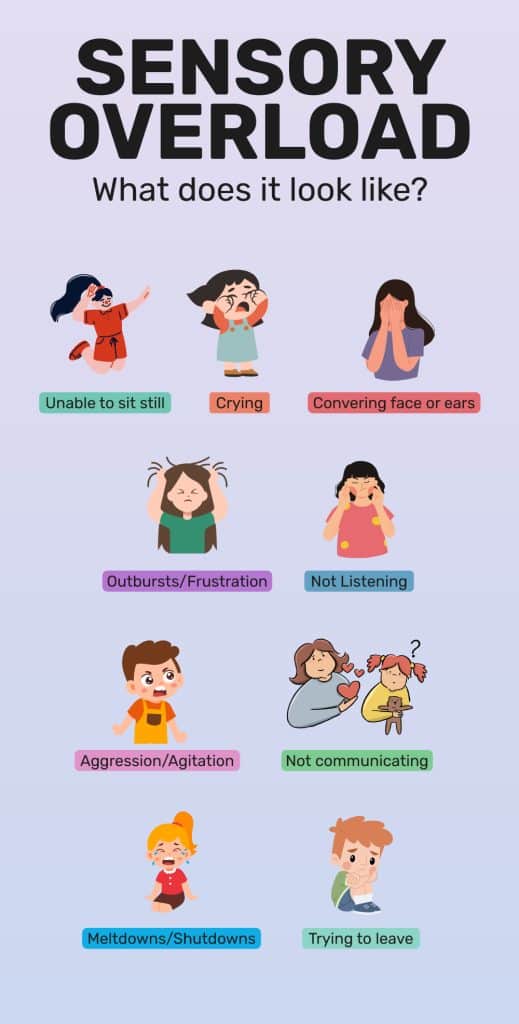The ADHD Experience: A Look Inside Our ADHD Minds

Table of Contents
The Cognitive Landscape of ADHD
The ADHD experience is significantly shaped by its impact on cognitive functions. Many individuals with ADHD face distinct challenges in several key areas.
Attention and Focus Challenges
One of the most recognizable aspects of the ADHD experience is the struggle with attention and focus. This isn't simply about being easily distracted; it's a complex interplay of several factors. Individuals with ADHD often:
- Difficulty sustaining attention on tasks: Maintaining concentration on a single task for an extended period can be incredibly difficult, leading to unfinished projects and frustration.
- Frequent distractions and mind-wandering: Even minor stimuli can derail focus, causing the mind to wander to unrelated thoughts or activities.
- Problems with selective attention: Filtering out irrelevant information is a significant challenge, making it difficult to concentrate in noisy or stimulating environments.
- Hyperfocus on specific interests: While attention can be fleeting for many tasks, individuals with ADHD can sometimes experience hyperfocus, intensely concentrating on a particular interest for extended periods, often to the detriment of other responsibilities.
Understanding these attentional challenges is vital for managing the ADHD experience. Strategies like breaking down tasks into smaller, more manageable chunks, minimizing distractions, and utilizing time management tools can significantly improve focus and productivity.
Executive Function Deficits
Beyond attention, the ADHD experience frequently involves deficits in executive functions – the higher-level cognitive processes that enable us to plan, organize, and execute tasks effectively. These deficits significantly impact the daily ADHD experience, resulting in:
- Difficulties with planning and organization: Creating and sticking to plans can be a significant hurdle, leading to disorganization and missed deadlines.
- Problems with time management and prioritization: Determining task importance and allocating sufficient time can be challenging, leading to procrastination and feeling overwhelmed.
- Impulsivity and difficulty inhibiting behavior: Acting without thinking, interrupting conversations, or making rash decisions are common experiences.
- Challenges with working memory: Holding information in mind and manipulating it to complete tasks can be difficult, hindering learning and problem-solving.
These executive function deficits significantly impact the daily ADHD experience. However, techniques like using visual aids, establishing routines, and practicing mindfulness can help mitigate these challenges.
Emotional and Behavioral Manifestations of ADHD
The ADHD experience extends beyond cognitive challenges; it encompasses a wide range of emotional and behavioral manifestations.
Emotional Regulation
Individuals with ADHD often experience difficulties regulating their emotions. This can manifest as:
- Increased irritability and frustration: Minor setbacks can trigger disproportionate emotional responses.
- Difficulty managing intense emotions: Experiencing intense emotions like anger, sadness, or anxiety can be overwhelming and difficult to control.
- Emotional lability: Rapid and unpredictable shifts in mood are common, leading to emotional instability.
- Potential for increased anxiety and depression: The challenges associated with ADHD can contribute to the development of anxiety and depression.
Learning effective emotional regulation strategies is a key aspect of a positive ADHD experience. Techniques like mindfulness, deep breathing exercises, and cognitive behavioral therapy (CBT) can be invaluable.
Behavioral Characteristics
In addition to emotional regulation challenges, the ADHD experience often involves distinct behavioral characteristics, including:
- Restlessness and hyperactivity (in some cases): Although not present in all individuals with ADHD, restlessness and hyperactivity can be significant challenges.
- Impulsivity and acting without thinking: This can lead to regrettable actions and difficulties in social situations.
- Difficulty with self-control and following rules: Adhering to rules and regulations can be challenging, leading to conflict and frustration.
- Problems with task completion and follow-through: Starting projects is often easier than finishing them, resulting in incomplete tasks and feelings of inadequacy.
Understanding these behavioral patterns enhances the ability to support individuals navigating the ADHD experience. Providing structure, clear expectations, and positive reinforcement can significantly improve behavioral outcomes.
The ADHD Experience in Daily Life
The challenges associated with ADHD significantly impact various aspects of daily life.
Academic and Professional Challenges
The ADHD experience presents unique difficulties within academic and professional settings:
- Difficulties with academic performance and organization: Maintaining focus, completing assignments, and organizing materials can be incredibly challenging for students with ADHD.
- Challenges in maintaining employment due to organizational and attention difficulties: Difficulties with time management, prioritization, and attention can impact job performance and career progression.
Strategies for academic and professional success within the context of the ADHD experience are essential. These strategies often involve seeking accommodations, utilizing organizational tools, and developing personalized strategies for managing time and tasks.
Social and Relationship Impacts
The ADHD experience can also affect social interactions and relationships:
- Difficulties maintaining relationships due to impulsivity or communication issues: Impulsivity and difficulties with communication can strain relationships with family, friends, and romantic partners.
- Challenges with social cues and understanding nonverbal communication: Misinterpreting social cues can lead to misunderstandings and social awkwardness.
Building positive social connections despite the challenges of the ADHD experience requires self-awareness and tailored strategies. Learning to manage impulsivity, practicing active listening skills, and seeking social support can all contribute to stronger relationships.
Conclusion
The ADHD experience is multifaceted and unique to each individual. Understanding the cognitive, emotional, and behavioral aspects of ADHD is paramount to providing support and fostering self-acceptance. By recognizing the challenges and implementing effective coping strategies, individuals with ADHD can thrive and lead fulfilling lives. Learn more about managing your own ADHD experience or supporting someone you know who lives with ADHD. Discover resources and support networks dedicated to improving the ADHD experience for everyone.

Featured Posts
-
 Chris And Megs Unforgettable Wild Summer
May 13, 2025
Chris And Megs Unforgettable Wild Summer
May 13, 2025 -
 New York Islanders Secure No 1 Nhl Draft Pick
May 13, 2025
New York Islanders Secure No 1 Nhl Draft Pick
May 13, 2025 -
 Tory Lanez Prison Attack Singer Reportedly Stabbed Hospitalized
May 13, 2025
Tory Lanez Prison Attack Singer Reportedly Stabbed Hospitalized
May 13, 2025 -
 Funeral For Teenager Killed In School Stabbing
May 13, 2025
Funeral For Teenager Killed In School Stabbing
May 13, 2025 -
 Leo Di Caprio Skips Red Carpet Makes Met Gala Appearance With Vittoria Ceretti
May 13, 2025
Leo Di Caprio Skips Red Carpet Makes Met Gala Appearance With Vittoria Ceretti
May 13, 2025
